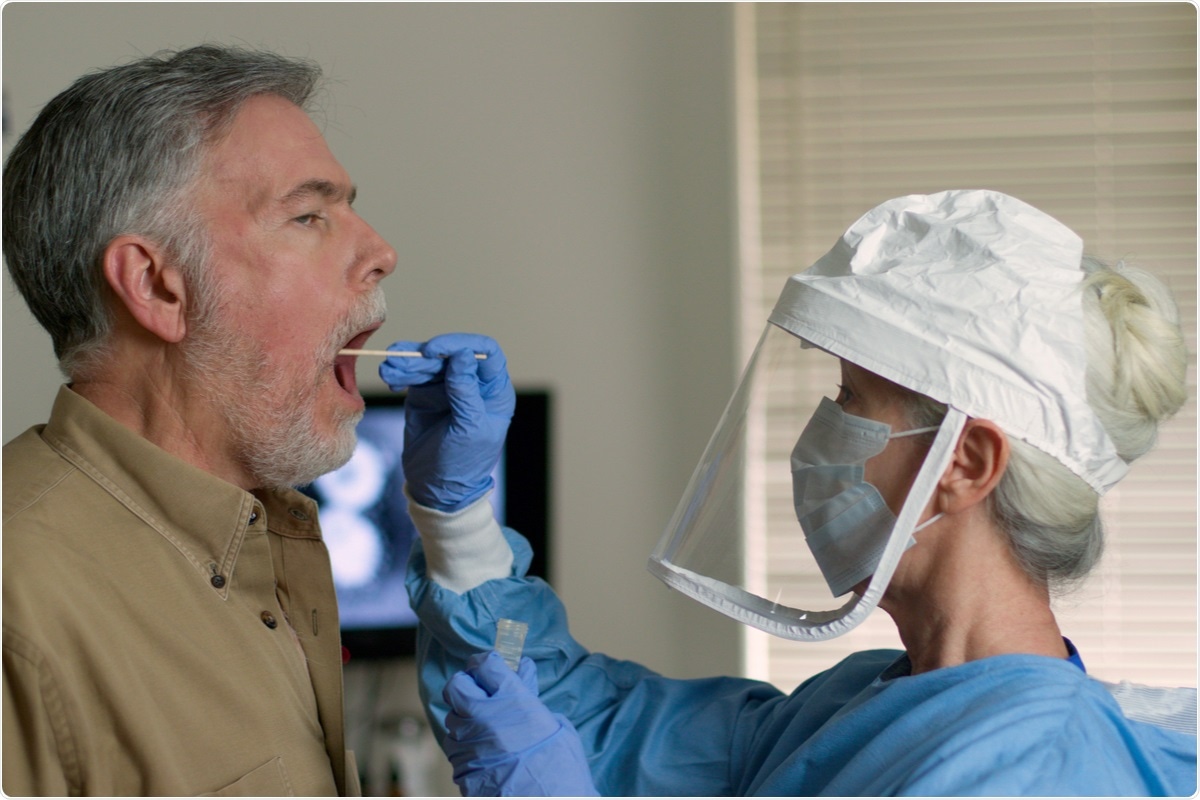3 door mirrored medicine cabinet wooden
Scientists across the world are working extensively to develop various means which would aid in containing the ongoing coronavirus disease 2019 (COVID-19) pandemic soon. The global outbreak of severe acute respiratory syndrome coronavirus 2 (SARS-CoV-2), the causal agent of COVID-19, is due to the extremely high rate of infectivity of this RNA virus. Apart from developing new COVID-19 vaccines, there has been immense progress in therapeutics too. The emergence of new SARS-CoV-2 variants has raised the level of concern as it has questioned the efficacy of the approved vaccines.

Background
The overwhelming number of new cases and deaths due to this disease and also continual emergence of new contagious SARS-CoV-2 variants have increased the need for prognostic tests. This testing kit would help decide the order of treatment for the high volumes of patients arriving in hospitals. For the detection of SARS-CoV-2, nasopharyngeal swabs are obtained from the candidate, and this sample is subjected to a real-time polymerase chain reaction (RT-PCR).
The high demand for COVID-19 tests worldwide has created enormous pressure on the supply chains for swabs. The delay in the steady supply of swabs amongst the high demand for testing has increased the need for alternative forms of sample and testing methods. Further, strattera grippe the existing PCR test does not provide prognostic information and fails to deliver rapid results, which are extremely important for hospitalized patients. Researchers claim that diagnostic tests based on mass spectroscopy could be rapid, as a result, could be generated within a few minutes.
Alternative and ideal COVID-19 test sample
Prognostic information could be provided by analyzing metabolic biomarkers in serum. Collecting and evaluating patients’ saliva samples is way easier than handling blood samples. Further, apart from the fact that obtaining blood samples includes invasive methods, which can be painful, it also demands a quick spun soon after collection to preserve the metabolome. Saliva samples can be collected quickly without hurting the patient. In this light, new research has been released on the medRxiv* preprint server, which has proposed saliva samples as a gold standard for SARS-CoV-2 detection, as saliva by itself is a carrier of the virus.
Currently, saliva is used as a biofluid for metabolomic analysis has been used to detect breast, pancreatic, and oral cancers. Authors of this study have explored the potential of saliva metabolomics to predict severe and mild COVID-19 infection, which could help health officers and doctors decide on the line of treatment, i.e., which patient should be administered immunomodulating drugs such as Tocilizumab, etc.
This research work was a part of the COVID-19 International Mass Spectrometry (MS) Coalition, which focuses on providing molecular-level information on SARS-CoV-2 in infected humans. Such information would help researchers to understand, diagnose and treat patients with COVID-19 infection better. The data associated with this research is available in the MS Coalition open repository.
Analysis of the samples
Researchers of the present study collected saliva samples from the hospitalized patients with clinical symptoms of SARS-CoV-2 infection. These patients later underwent RT-PCR tests for the confirmation of the disease. Additionally, clinical metadata of these patients were also collected. Subsequently, metabolites extracted from the saliva samples were analyzed using liquid chromatography-mass spectrometry.
The number of variables within the metadata elucidates the practical difficulties in the experimental designs. The samples belonged to patients of wide-ranging age groups with various comorbidities. The time between the sample collection and onset of the symptoms varied from a day to a month. In this pilot study, another difficulty that the researchers faced is the small sampling number which contributed to low precision and wide confidence intervals.
The authors of this research have obtained a positive percent agreement as well as a negative percent agreement of 1.00 between a PLS-DA metabolomics model and the clinical diagnosis of COVID-19 severity. Several metabolites such as valine and leucine revealed statistically significant differences between patients with severe and mild COVID-19 symptoms.
Conclusions of the study
The authors of this study were successful in identifying various features that could differentiate the saliva of patients with severe COVID-19 disease from mildly infected ones. Researchers of this study highlighted the importance of saliva to add to the understanding of the progression of the disease, i.e., whether the patient might be mildly or severely affected by SARS-CoV-2. Another advantage of using saliva as an alternative sample for the detection of COVID-19 disease is that it can be collected less invasively than other biofluids.
*Important notice
medRxiv publishes preliminary scientific reports that are not peer-reviewed and, therefore, should not be regarded as conclusive, guide clinical practice/health-related behavior, or treated as established information.
- Bailey, M. et al. (2021). Untargeted saliva metabolomics reveals COVID-19 severity: Saliva Metabolomics for SARS-COV-2 Prognosis. medRxiv 2021.07.06.21260080; doi: https://doi.org/10.1101/2021.07.06.21260080, https://www.medrxiv.org/content/10.1101/2021.07.06.21260080v1.
Posted in: Medical Science News | Disease/Infection News | Healthcare News
Tags: Blood, Chromatography, Coronavirus, Coronavirus Disease COVID-19, Diagnostic, Drugs, Efficacy, Leucine, Liquid Chromatography, Mass Spectrometry, Metabolites, Metabolomics, Pandemic, Polymerase, Polymerase Chain Reaction, Research, Respiratory, RNA, SARS, SARS-CoV-2, Severe Acute Respiratory, Severe Acute Respiratory Syndrome, Spectrometry, Spectroscopy, Syndrome, Therapeutics, Valine, Virus

Written by
Dr. Priyom Bose
Priyom holds a Ph.D. in Plant Biology and Biotechnology from the University of Madras, India. She is an active researcher and an experienced science writer. Priyom has also co-authored several original research articles that have been published in reputed peer-reviewed journals. She is also an avid reader and an amateur photographer.
Source: Read Full Article
